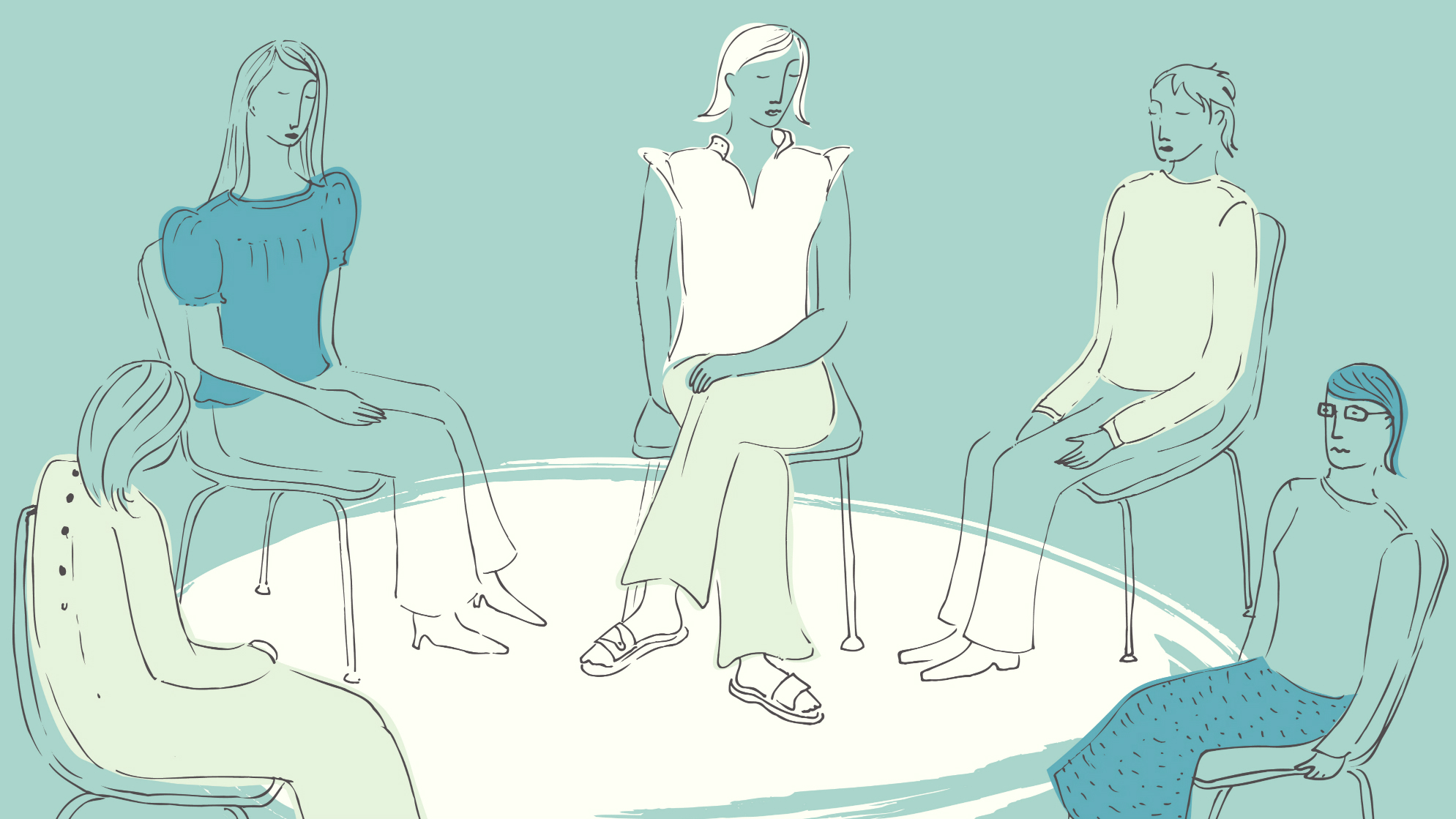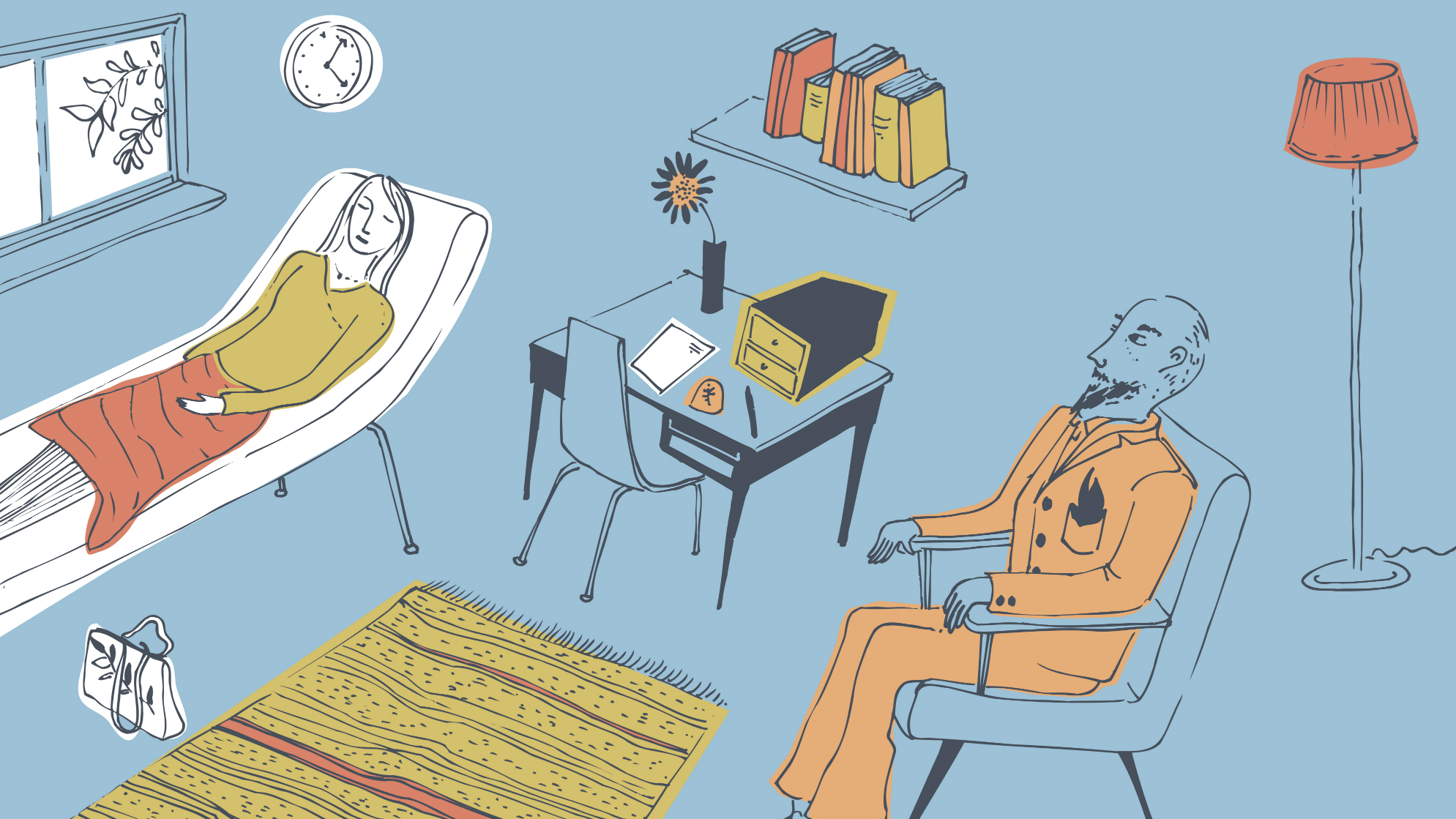This is what happens to you after a year in therapy
Seeing a therapist is scary, right? That's exactly what Olivia Foster thought so she lived with high-functioning anxiety for way too long. Now she's ready to tell you a few home truths


Seeing a therapist is scary, right? That's exactly what Olivia Foster thought so she lived with high-functioning anxiety for way too long. Now she's ready to tell you a few home truths
Therapy. More than a quarter of people in the UK have had it in the last year, but – despite having suffered with a myriad of mental health problems since my teens - I’d always avoided it. Scared of what I might learn and lacking the energy to confront my issues, I tight-roped my way through life slowly becoming more and more hardened to living with high functioning anxiety.
Year upon year I put it off and struggled on; outwardly appearing fine, inwardly unable to silence the cacophony of negative voices in my head. That was until December 2018, when, after a particularly difficult period, I decided enough was enough. I had to challenge my long-held belief that life didn’t get any better than this or worse, that I didn’t deserve it to.
On the recommendation of a friend I got in touch with Mind – who, after a consultation, put me on the list for firstly a 12-week group course focusing on self- compassion and secondly, one-to-one therapy.
The first time I sat in a room faced with 14 other strangers, I couldn’t tell you what was said. Usually talkative to the point of outspokenness I felt like someone was sitting on my neck, and I spent the session avoiding eye contact, starring resolutely at an unused whiteboard on the other side of the room, with my mind swimming to the point of dizziness at the thought of the vulnerability that would be required of me for this to have a positive outcome. It took all of my willpower to go back the next week, but I did, and here’s what I learned…

You’ll Learn To Stop Repeating Things About Yourself That Aren’t True
We spend our lives telling stories about ourselves and along with our behaviour, these can define people’s perceptions of us. So, what happens when you’re telling stories about yourself that aren’t true? Or were once true, but aren’t any more? Before going to therapy I would repeat traumatic stories about myself as a means to make people understand me, I thought this was how people related to one another. But as I grew up and started to change, I’d found myself becoming frustrated with the version of myself I’d created. What I’ve learned is that the words you speak about yourself can become true, if you let them, just as the things you believe yourself have a habit of continuing until you break the cycle of thought. But only you have the power to change that narrative.
Your New Boundaries Might Break Old Friendships
One commonality I found amongst people who have had therapy is a desire to be liked, to attract friendships and relationships with people regardless of whether you actually like them back. One-to-one therapy helped me build boundaries and to stop this kind of behaviour, however, it’s was not without consequences. When you start developing boundaries with regards to how you need and expect other people to treat you, you will discover that some people may not like it, because your boundaries will mess with the dynamic of your relationships. It’s a cliched adage but the ones who are worth it will stick around, they’ll adjust and support you, the ones who are not, won’t. You’ll have to learn to let them go.
Celebrity news, beauty, fashion advice, and fascinating features, delivered straight to your inbox!

The Things You Think Fucked You Up Might Not Be The Ones That Actually Did
If you are thinking of, or have had, therapy, it’s likely you know what I’m talking about. The list. The list of things that made you the way you are. You’ll have ruminated over it for years, you might have cried over it, or whispered it to those closest to you, or used it to excuse yourself when you’ve behaved badly. It could be your relationship with your parents, or your lack of relationship now, it could be that you’ve never felt you’ve achieved enough or that you’ve achieved everything but you still lack a sense of belonging. You’ll have this idea that when you sit down with your therapist you’ll work your way methodically through the list achieving mental clarity as each session passes. And then one day you’ll be talking about something which feels relatively inconsequential and your therapist will look at you and say, ‘It seems like that could have hurt you,’ and you’ll realise that even you can never know everything about yourself and your motivations. The best you can do is try.
You’ll Realise It’s OK To Be Angry
There is a famous scene in Good Will Hunting, you know the one, where Robin William’s character repeatedly tells Will, aka Matt Damon, that, ‘It’s not your fault.’ His mental illness, his issues; not his fault. When you spend your life spinning through periods of anxiety it’s very easy to self-loath and to blame yourself for everything that might have gone wrong in your life. And these emotions can be particularly difficult to deal with in a society where – despite an increasing understanding about mental health issues – negative emotions can be seen as, well, too negative. It was revolutionary to be told that it’s ok to be angry if someone has treated you badly after years of conditioning to be the bigger person, to rise above it, to let things go. Now this is not to say that it’s necessarily healthy to be angry forever, but to learn that my emotions – even the negative ones – were valid, was nothing short of life changing.
* If you are struggling with any of the issues Olivia refers to in this article, Mind - the mental health charity - can help you make choices about treatment and services: mind.org.uk
Maria Coole is a contributing editor on Marie Claire.
Hello Marie Claire readers – you have reached your daily destination. I really hope you’re enjoying our reads and I'm very interested to know what you shared, liked and didn’t like (gah, it happens) by emailing me at: maria.coole@freelance.ti-media.com
But if you fancy finding out who you’re venting to then let me tell you I’m the one on the team that remembers the Spice Girls the first time round. I confidently predicted they’d be a one-hit wonder in the pages of Bliss magazine where I was deputy editor through the second half of the 90s. Having soundly killed any career ambitions in music journalism I’ve managed to keep myself in glow-boosting moisturisers and theatre tickets with a centuries-spanning career in journalism.
Yes, predating t’internet, when 'I’ll fax you' was grunted down a phone with a cord attached to it; when Glastonbury was still accessible by casually going under or over a flimsy fence; when gatecrashing a Foo Fighters aftershow party was easy-peasy-lemon-squeezy and tapping Dave Grohl on the shoulder was... oh sorry I like to ramble.
Originally born and bred in that there Welsh seaside town kindly given a new lease of life by Gavin & Stacey, I started out as a junior writer for the Girl Guides and eventually earned enough Brownie points to move on and have a blast as deputy editor of Bliss, New Woman and editor of People newspaper magazine. I was on the launch team of Look in 2007 - where I stuck around as deputy editor and acting editor for almost ten years - shaping a magazine and website at the forefront of body positivity, mental wellbeing and empowering features. More recently, I’ve been Closer executive editor, assistant editor at the Financial Times’s How To Spend It (yes thanks, no probs with that life skill) and now I’m making my inner fangirl’s dream come true by working on this agenda-setting brand, the one that inspired me to become a journalist when Marie Claire launched back in 1988.
I’m a theatre addict, lover of Marvel franchises, most hard cheeses, all types of trees, half-price Itsu, cats, Dr Who, cherry tomatoes, Curly-Wurly, cats, blueberries, cats, boiled eggs, cats, maxi dresses, cats, Adidas shelltops, cats and their kittens. I’ve never knowingly operated any household white goods and once served Ripples as a main course. And finally, always remember what the late great Nora Ephron said, ‘Everything is copy.’
